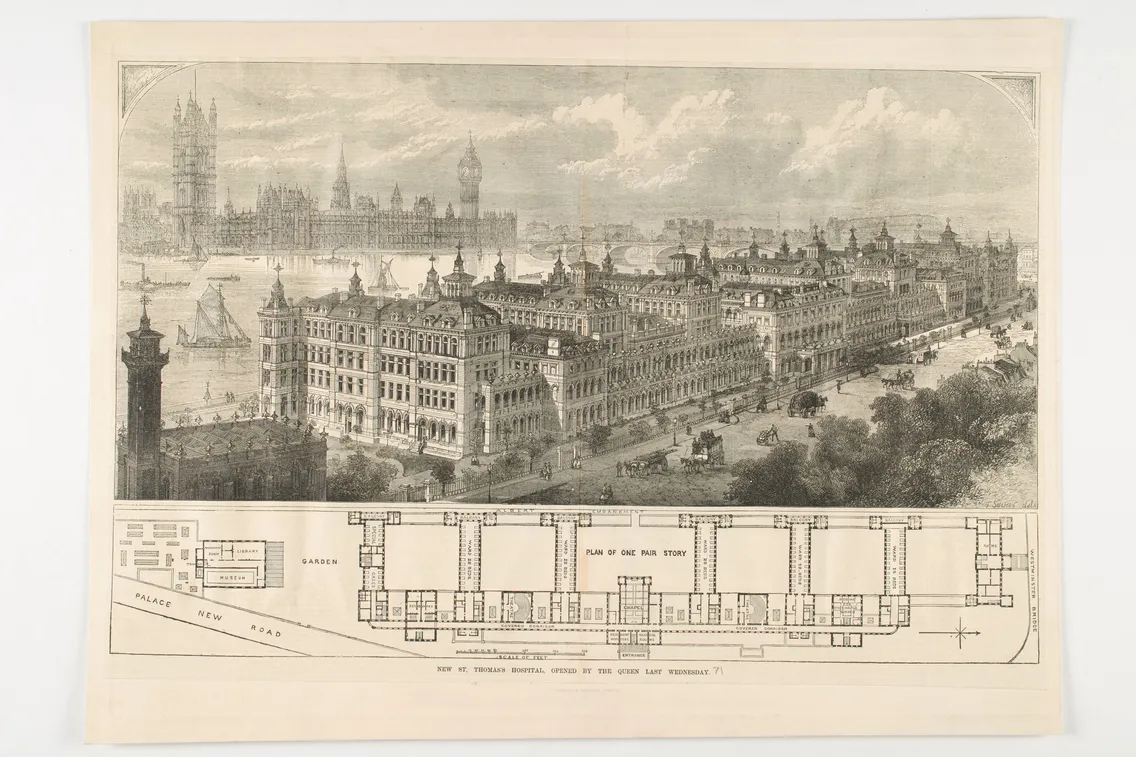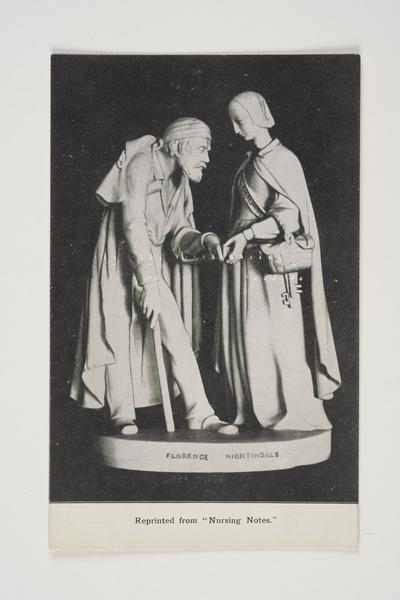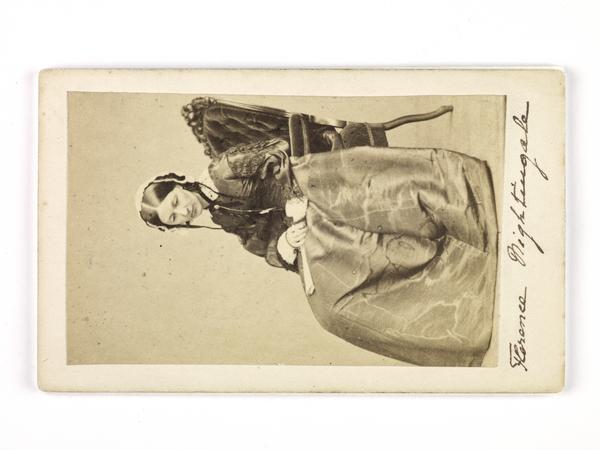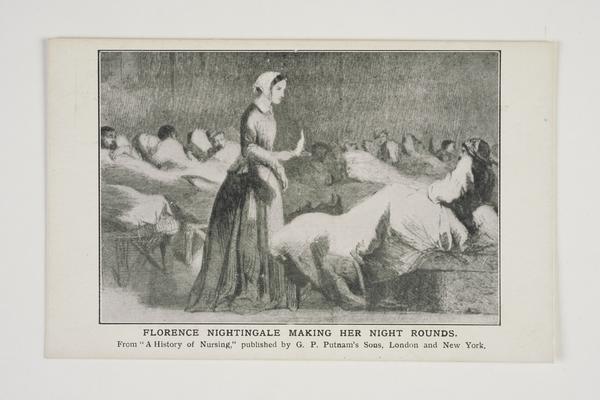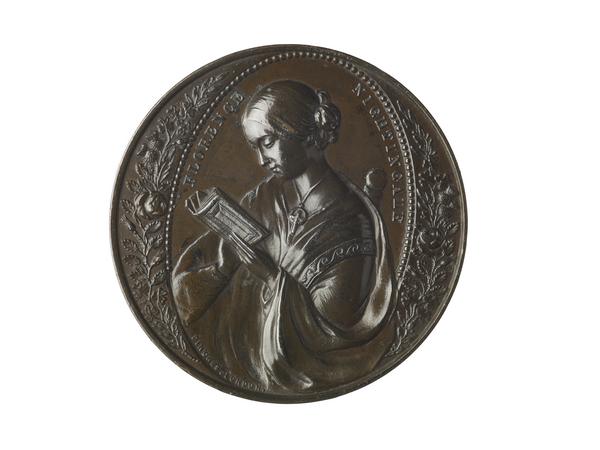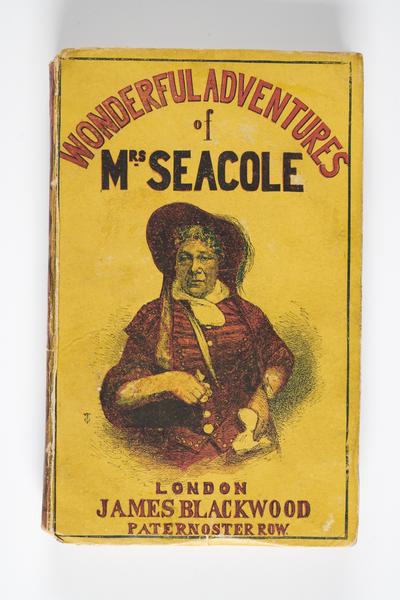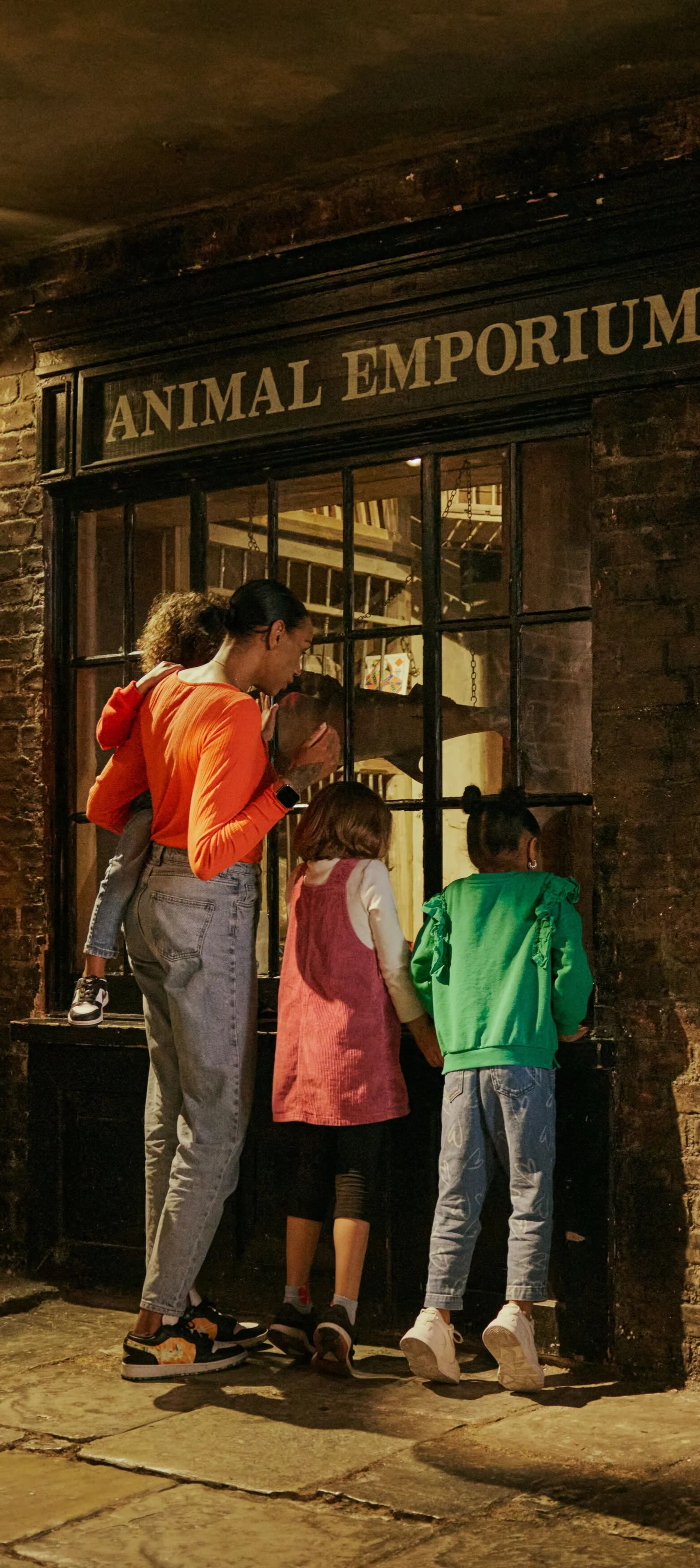How Florence Nightingale shaped London healthcare
Florence Nightingale transformed healthcare in London with new ideas on hospital ward designs, cleanliness and specialist training.
1820–1910

A founder of modern nursing
She’s best known as the ‘Lady with the Lamp’ who cared for wounded British soldiers during the Crimean War from 1854. But Florence Nightingale’s radical ideas on nursing also had a huge impact on hospitals back in Britain – particularly in London.
She pioneered new hospital wards, still known as Nightingale Wards, designed to prevent infection and improve recovery. She also set up the world’s first professional nursing school at St Thomas’ Hospital.
Nightingale was widely recognised in her time and influenced in Britain and abroad. She was the first woman to receive the British honour of the Order of Merit in 1907.
Nightingale’s work during the Crimean War
Nightingale led a team of female nurses in the British military hospitals in Turkey, located away from the key battlefields of the Crimean War (1853–1856).
She greatly improved the overcrowded, dirty and insanitary conditions of these hospitals. New standards of cleanliness were put in place. Laundries were set up to wash bedding and clothing. And handwashing was made routine. Fewer soldiers died on the wards as a result.

Postcard depicting Florence Nightingale making her night rounds.
She wasn’t the only nurse at this time to practise this modern, hygienic form of nursing. Jamaican-born Mary Seacole, for example, overcame racism within the establishment by funding her own trip to the Crimea. She set up her ‘British hotel’ close to the battlefields to provide a place of respite for sick and recovering soldiers.
“She'd turned this stereotype of nurses on its head”
Transforming nursing into a profession
Nursing didn’t have the best reputation in Britain before Nightingale became a nurse. There was no professional training, so many nurses lacked knowledge and skills. They often had a bad reputation and were given little respect. Just look at Thomas Rowlandson’s watercolour that depicts The Drunken Nurse. It’s a disaster.

Thomas Rowlandson's watercolour The Drunken Nurse.
But news spread to Britain about Nightingale’s work in the Crimean War. She'd turned this stereotype of nurses on its head. The Nightingale Fund was set up in 1855 to raise money in her honour.
In 1856, Queen Victoria wrote to her hoping to “make the acquaintance of one who has set so bright an example to our sex”. She returned to Britain as a hero.
Nightingale pioneered a highly skilled, professional and respectable nursing workforce in the capital. Using money from the fund, in 1860, she set up the world’s first non-religious school of nursing: the Nightingale Training School at St Thomas’ Hospital, originally located in Southwark. She also established a midwifery training scheme at King’s College Hospital in Lambeth.

Florence Nightingale photographed by the London Stereoscopic & Photographic Company Ltd.
Improvements in hospital design
Nightingale believed hospital buildings could affect the health and wellbeing of patients. This was particularly important in large, crowded cities like London where mortality in hospitals was much higher.
“The first principle of hospital construction is to divide the sick among separate pavilions,” she wrote in her 1863 Notes on hospitals. Pavilions were large, rectangular, open-plan wards that made it easier for nurses to supervise all patients. These wards became known as Nightingale Wards.
The new hospitals also had plenty of windows to let in fresh air and light. This challenged the traditionally held belief that bad air, or ‘miasma’, spreads diseases and shouldn’t enter a building.
Nightingale was instrumental in the design of the new St Thomas’ Hospital on its current site in Lambeth in 1872. You can see the pavilion-style Nightingale Wards mapped out in the floorplan in the print above. It’s thought she advised on the design of a further 48 hospital buildings during her life.
Nightingale’s enduring influence
Nightingale was widely celebrated for her influence on nursing and healthcare after her death in 1910.
During the First World War, Londoners took part in ‘Lamp Flag Days’, which were usually held on Nightingale’s birthday on 12 May. Volunteers sold emblems representing the lamp she carried in the Crimean War to raise money for women injured while undertaking war service.
Postcards in our collection also show how her image as a female role model was used in the Votes for Women campaign.

Pro-female suffrage postcard.
Her name continues to be used within Britain’s healthcare system today. You can find Nightingale Wards in many of the country’s hospitals. And in 2020, the first so-called NHS Nightingale Hospital was rapidly set up in the ExCeL London convention centre to treat patients suffering with COVID-19.


